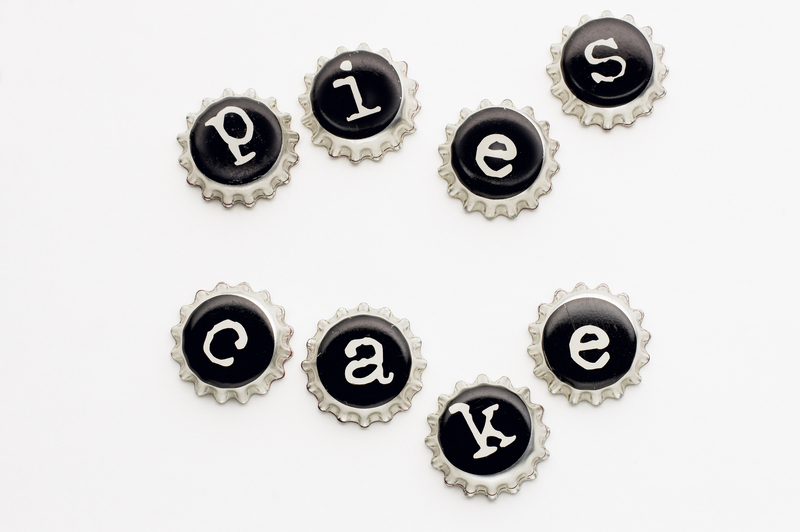The dos and don'ts of handling your trash
Posted on 22/06/2024
Introduction
Trash is an inevitable part of our daily lives. From food waste to packaging materials, we all generate a significant amount of trash every day. However, the way we handle our trash can have a major impact on the environment and our communities. Improper handling of trash can lead to pollution, health hazards, and harm to wildlife. On the other hand, proper handling can reduce pollution and promote a cleaner and healthier environment. In this article, we will discuss the dos and don'ts of handling your trash to help you make more environmentally responsible decisions.

The Dos
1. Separate your waste
One of the first steps in proper trash handling is separating your waste into different categories. This includes recyclable materials such as paper, plastic, glass, and metal, as well as organic waste like food scraps. By separating your waste, you can ensure that recyclable materials are sent for recycling instead of ending up in landfills where they can take hundreds of years to decompose.
2. Compost organic waste
Composting is an excellent way to handle organic waste. Instead of throwing food scraps in the trash where they will end up in landfills and produce harmful greenhouse gases, composting allows you to turn them into nutrient-rich soil that can be used for gardening or farming. It also helps reduce the amount of waste sent to landfills.
3. Reduce packaging waste
Packaging materials such as plastic bags, containers, and wrappers make up a significant portion of our daily trash. One way to reduce this type of waste is by bringing your own reusable bags when grocery shopping or using reusable containers for storing leftovers instead of disposable ones. You can also choose products with minimal packaging or buy in bulk to reduce the amount of packaging waste generated.
4. Properly dispose of hazardous waste
Certain types of household items such as batteries, chemicals, and electronics are considered hazardous waste and should not be thrown in the regular trash. These items can harm the environment and pose a threat to human health if not disposed of properly. Many local governments have designated drop-off locations for hazardous waste, so make sure to research and dispose of these items correctly.
5. Educate yourself on local recycling programs
Recycling programs can vary from one community to another, so it's essential to educate yourself on what materials are accepted for recycling in your area and how to properly prepare them for recycling. This can help ensure that your recyclables are processed correctly and not contaminated by non-recyclable materials.
6. Invest in reusable products
Another way to reduce your trash output is by investing in reusable products such as water bottles, coffee mugs, and cloth bags. By using these items instead of disposable ones, you can significantly decrease the amount of waste you generate.
The Don'ts
1. Don't mix recyclables with non-recyclables
It's crucial to separate your recyclables from non-recyclables as mixing them together can contaminate the recyclable materials, making them unrecyclable. Take the time to sort your waste properly before disposing of it.
2. Don't throw trash outside
Leaving trash outside or littering is not only unsightly but also harmful to the environment. Trash left outside can attract pests and animals, leading to health hazards and damage to ecosystems. Make sure always to dispose of your trash in designated containers or bins.
3. Don't flush certain items down the toilet
Flushing items like wet wipes, cotton swabs, and dental floss down the toilet may seem convenient, but they can clog pipes and cause costly damages to wastewater treatment systems. These items should be disposed of in the trash bin instead.
4. Don't burn your trash
Burning your trash may seem like a quick fix, but it releases harmful toxins into the air and contributes to air pollution. Instead, opt for proper disposal methods like composting or recycling.
Tips for responsible trash handling
- Use reusable bags and containers as much as possible.
- Whenever possible, choose products with minimal packaging.
- Avoid buying single-use items like paper plates and plastic utensils.
- Educate yourself and your family on proper waste separation and disposal methods.
- Consider donating or selling items that are still in good condition instead of throwing them away.

Takeaways
Properly handling your trash is crucial to protect our environment and promote a healthier community. By following the dos and don'ts listed above, you can reduce your impact on the environment and contribute to a more sustainable future.
Conclusion
Taking responsibility for our trash may seem like a small action, but it can have a significant impact on the environment. By implementing simple habits such as separating our waste, composting, and reducing packaging waste, we can all do our part in creating a cleaner and healthier planet for ourselves and future generations. Let's work together to make responsible trash handling a priority in our daily lives.
Latest Posts
Cutting Down Waste in the Workplace


 office@benandjerry.org.uk
office@benandjerry.org.uk https://benandjerry.org.uk/
https://benandjerry.org.uk/

